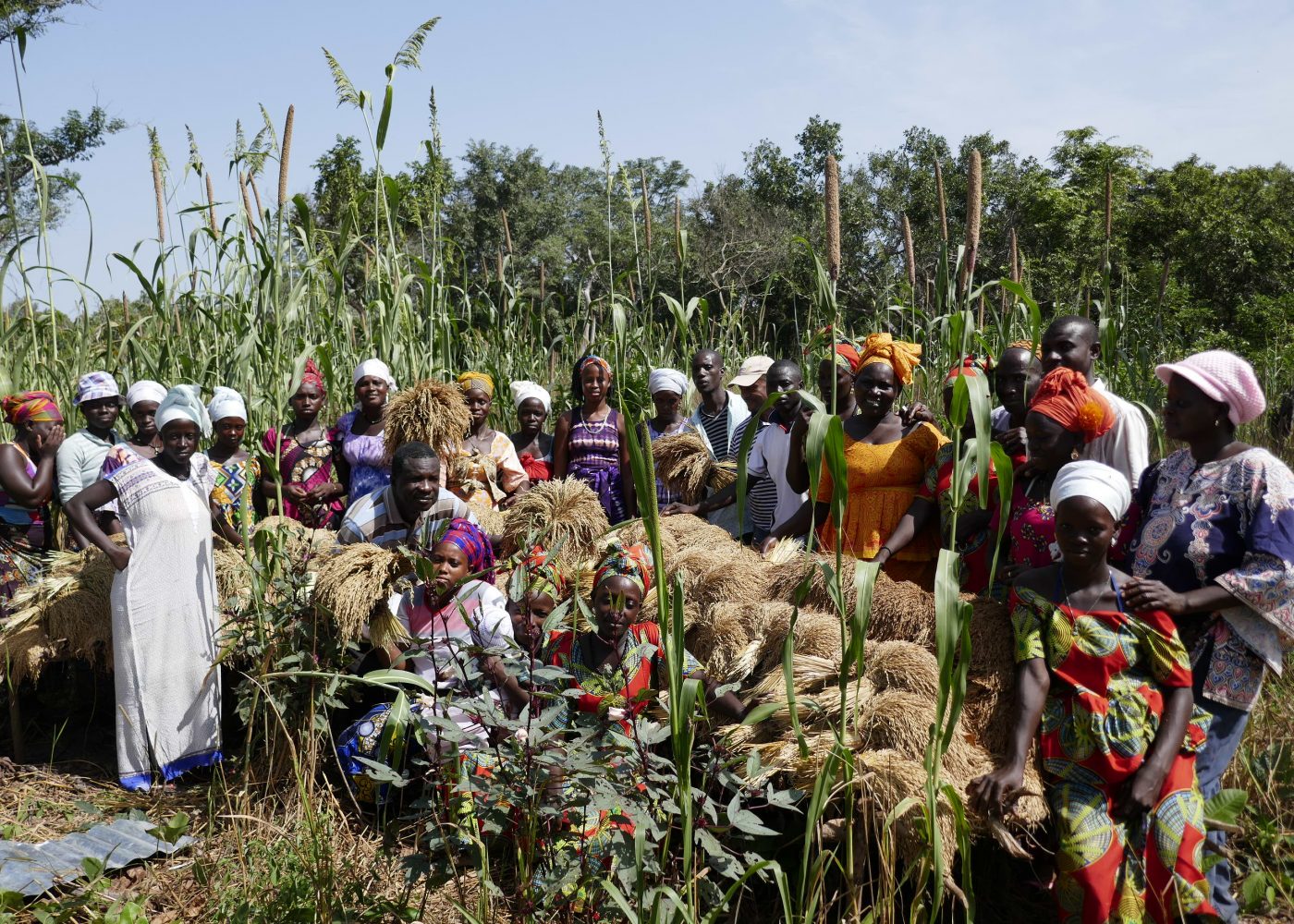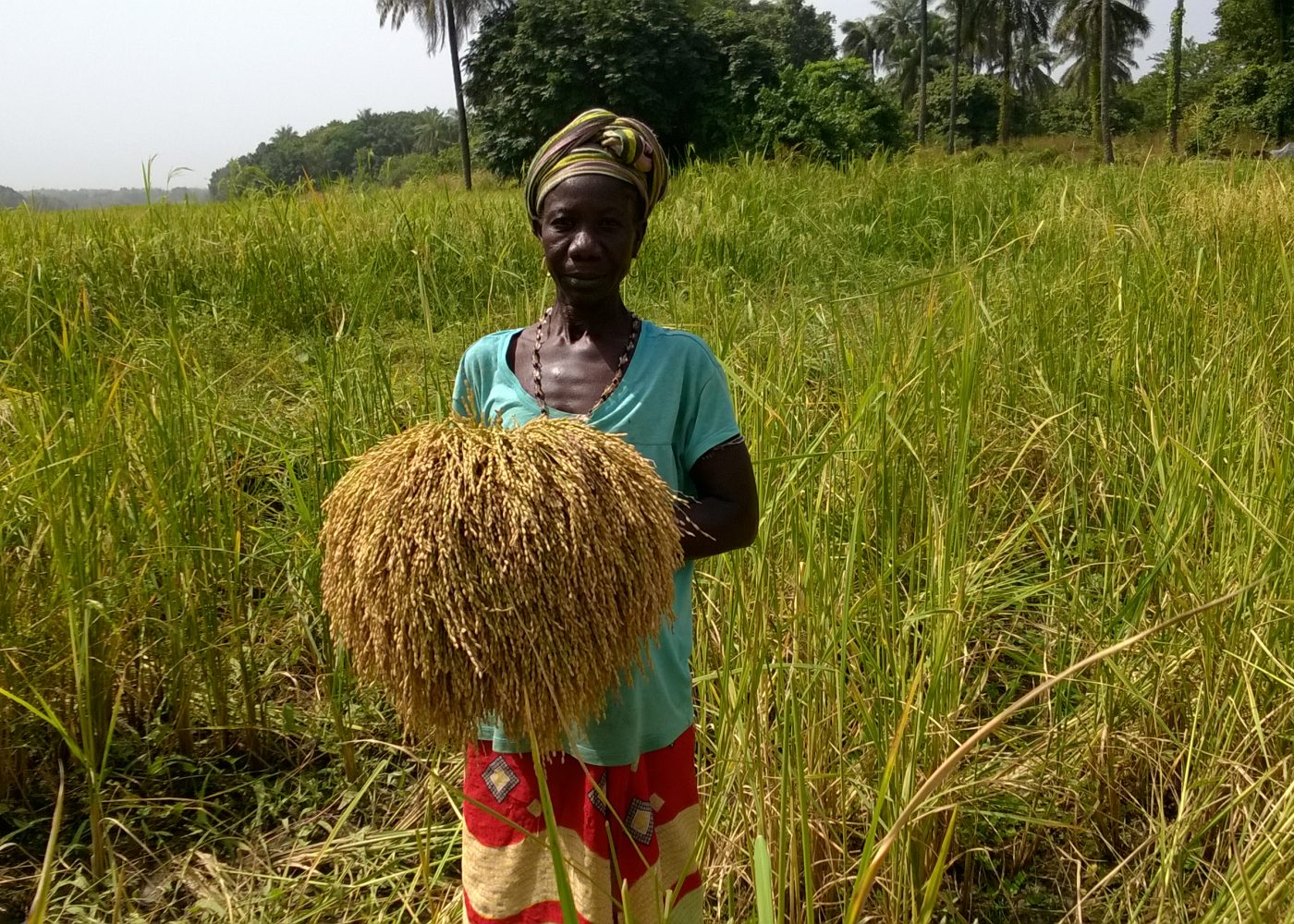
SUMMARY
In order to preserve their tradition, the Manjaq communities have embarked on a process of preserving local rice varieties essential for the organization of certain traditional ceremonies. Faced with these challenges, they have rebuilt their seed capital by making an inventory of all traditional seeds and their importance in traditional ceremonies. Doing this through multi-stakeholder meetings (with a strong involvement of young people) is a practical means of transmitting and perpetuating knowledge in rural areas. These meetings therefore not only made it possible to make an inventory of traditional seeds and links with Manjaque traditions, but also to make a classification of seeds to be disseminated in the four communities. Seed multiplication producers from the communities were identified and trained in local seed production and distribution techniques. Thanks to the combined actions and agronomic monitoring carried out with seed producers, seven traditional local varieties were produced and disseminated in the four communities, removing the fear that certain ceremonies could not be carried out due to the lack of an appropriate variety.
THE PROBLEM


The Manjaque ethnic group lives in northern Guinea-Bissau, south of the Cacheu River and is mainly a peasant community. Rice and beans are the staple foods of the population. As such, rice cultivation is the main cultivation system (lowland 70%, mangrove 27% and plateau 3%).
The Manjaques are a conservative people, very strongly attached to their culture, especially matrimonial culture. Beyond its nutritional character, local rice has a very strong socio-cultural aspect. The local rice varieties include, among others: “Ouimititend, Ungkango, Oubobo, Oumaratane, Titende, Oubignou, and Oudjinal”, which are 90-day long-cycle varieties. In the Manjaque tradition, different local rice varieties are used depending on the circumstances. Each specific variety of rice corresponds to a traditional ceremony (marriage, circumcision, funeral, rites of passage, celebration of the birth of a child, popular festivals, etc.). For this reason, the Manjaques have been able, from generation to generation, to develop and maintain strategies for the production and conservation of these seeds, even if in terms of yields the ‘improved varieties’ are much better. However, questions arise as to the future of these local rice varieties in the face of phenomena linked to climate change, which are gradually leading to salinization and acidification of the valleys, changes in dietary habits (high consumption of imported broken rice), the introduction of new rice varieties, the problem of labour in villages (rice farming is mobilizing fewer and fewer young people, even if there are still solidarity and mutual aid groups).
These factors contribute to the degradation or even disappearance of certain varieties and make it difficult or even impossible to perform certain traditional ceremonies.
Faced with the threats to local traditional rice, COAJOQ is committed to supporting communities in the sustainable preservation of these seeds. Since these initiatives have had positive impacts, this case study reviews the strategies put in place.
THE SOLUTION
The main objective is to support Manjaque communities in the sustainable preservation of traditional rice seeds.
Specifically, it was about:
- Making an inventory of local rice varieties, their place and importance in Manjaque culture;
- Implementing a solidarity policy for the multiplication, dissemination and sustainability of traditional seeds.
Activities carried out included:
Organization of meetings for sharing knowledge on local varieties: During these meetings, the aim was to make the different varieties better known to the Manjaque communities, especially to the new generations. These meetings, led by elders from all surrounding communities, first described all existing rice varieties, the appropriate ecological zone (plateau, lowland or mangrove), their production cycle, characteristics, traditional methods of seed conservation and their place in the Manjaque culture (ritual uses). The various contributions during the workshop revealed that there were less-known varieties but also varieties that had been abandoned. The meetings resulted in the prioritization of seven traditional seed varieties to be multiplied and disseminated.
Organization of awareness-raising and extension campaigns for local varieties: Following the meetings, awareness-raising and outreach campaigns were organized in all four zones. In total, seventeen communities were sensitized on the threats facing certain local varieties and the need to preserve them.
Identification of pilot producers in each zone: In order to promote better seed production and dissemination in the four zones, seventeen pilot producers were identified.
Organization of meetings to share and pool local know-how: in terms of seed multiplication and conservation with a view to documenting and sharing traditional practices;
Organization of practical training sessions for pilot producers: on seed production, dissemination and conservation techniques.
Implementation of pilot plots for the production of identified varieties: All the pilot producers benefited from quality seeds but also from small farm equipment.
RESULTS
In terms of changes, we can note:
-
All the varieties of seeds needed for traditional ceremonies are now available in the four zones;
- Establishment of links between rice varieties and their importance in Manjaque culture has fostered greater awareness among the population – mainly young people – and a desire to preserve these varieties;
- Very strong mobilization of young people who are involved in the production and multiplication of seeds to preserve the tradition.
The involvement of the elders has enabled the rapid recovery of abandoned seeds and their reintegration into production systems.

CONCLUSIONS AND RECOMMENDATIONS
The development of rice farming has always been at the centre of the concerns of the government, its development partners and the population. Various stakeholders focused on increasing production by introducing new, more productive varieties. But beyond the purely food aspects, rice farming is for the Manjaques communities a factor in preserving socio-cultural values. For these reasons, they have been able to meet a double challenge: that of rebuilding traditional seed capital, and that of seed production and related knowledge sharing to all Manjaque communities. In order to preserve knowledge for posterity and future generations, it is therefore necessary to document this approach highlighting the very strong link between traditional varieties and the preservation of traditional Manjaque ceremonies.

CHALLENGES
In terms of challenges, it is worth noting the lack of young labour for rice cultivation. Young people are becoming less and less involved in rice farming. It is therefore necessary to define how to mobilize them in order to ensure the sustainability of seed production and multiplication systems at the local level.
WHO IS AFSA?
AFSA brings together peasants, pastoralists, fishermen, indigenous peoples, farmers’ networks, faith-based groups, consumer associations, youth associations, civil societies and activists from across the African continent to create a united and stronger voice for food sovereignty.
For more information and case studies on Africa, visit our website https://afsafrica.org
AFSA encourages the use and reproduction of this case study for non-commercial purposes, provided that the source is duly acknowledged.

ACKNOWLEDGEMENT
Author: Leandro Pinto JÚNIOR, Executive Director, Cooperativa agro-pecuária de jovens quadros (COAJOQ), Guinea-Bissau.
Email: coajoq_2002@hotmail.com
Web: https://avrdc.org
Stay Updated
Keep up to date with all our latest news and events by entering your details below and signing up to our newsletter.
Contact us
For all general enquiries, please contact us
Follow us
Visitors
[powr-hit-counter id=08deb970_1539263115]





























